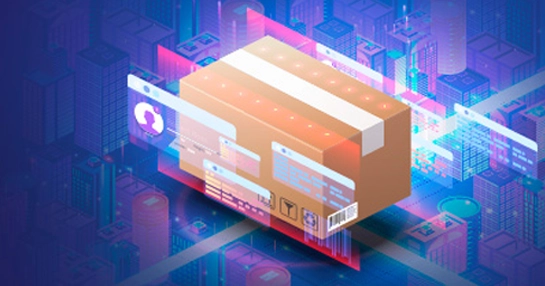Climate change is a pressing global challenge, and businesses have a big role to play in mitigating its effects. And decarbonization is key to realizing a sustainable future. However, many enterprises continue to face considerable challenges in their decarbonization journey — including absence of standards, fragmented supply chains, technological constraints, along with cost considerations. GEP can help.
Enabling Enterprises Reach Their Decarbonization Goals
We take a data-driven, comprehensive approach to enable enterprises reach their decarbonization goals. We work closely with leading global enterprises, identify and understand their unique needs and challenges, and accordingly develop bespoke decarbonization roadmaps — with a suite of comprehensive software solutions to sustain the improvements and become even more efficient.
GEP’S DECARBONIZATION APPROACH

With real-time data synchronization and AI-driven advanced analytics, our four-step decarbonization approach is seamlessly integrated and managed through the GEP GREEN software suite, empowering enterprises to monitor progress, adjust strategies, and achieve their decarbonization goals efficiently.
With real-time data synchronization and AI-driven advanced analytics, our four-step decarbonization approach is seamlessly integrated and managed through the GEP GREEN software suite, empowering enterprises to monitor progress, adjust strategies, and achieve their decarbonization goals efficiently.
Why Partner With GEP?
As a dedicated partner in navigating the complexities of decarbonization, our proven expertise and comprehensive approach toward achieving a sustainable future include:
Deep Procurement and Supply Chain Expertise
Our proven sustainability-driven approach and expertise in procurement and supply chain enable us to minimize environmental impact.
Global Reach and Local Knowledge
Our global presence enables us to understand the big picture and also the diverse regulatory and market realities wherever you operate.
Technology-Driven Solutions
We leverage cutting-edge AI and ML technologies to ensure data-driven decision-making and efficient execution.
Collaborative Approach
We work closely with our clients as a true partner, fostering open communication and a shared commitment to achieving net zero.
FAQ
Organizations looking to build an effective integrated decarbonization strategy must follow a structured approach that aligns environmental goals with business objectives. The process involves meticulous planning, comprehensive data analysis and cross-functional collaboration.
The initial phase involves carrying out a detailed carbon footprint assessment across Scope 1, Scope 2, and Scope 3 emissions. This baseline assessment should leverage industry-standard methodologies such as the GHG Protocol to ensure accuracy and comparability. Organizations must identify direct emissions from owned operations, indirect emissions from purchased energy, and value chain emissions from suppliers, logistics and product use.
Following baseline establishment, organizations should define science-based targets aligned with the Paris Agreement. These targets must include specific milestones and deadlines, typically with interim goals for 2030 and longer-term objectives for 2050. The Science Based Targets initiative (SBTi) provides frameworks for target validation across various sectors.
Next, organizations need to develop a carbon reduction roadmap that prioritizes initiatives based on impact potential, implementation complexity and cost-effectiveness. This roadmap should combine efficiency improvements, process modifications, and renewable energy adoption with emerging technologies and circular economy principles. The strategy must balance quick wins with longer-term transformational changes.
The implementation requires robust governance structure with clear accountability mechanisms. Organizations should assemble dedicated sustainability teams, integrate carbon metrics into performance evaluations and ensure executive sponsorship. Financial planning must include carbon pricing mechanisms and dedicated budgets for decarbonization initiatives.
Supply chain engagement represents a critical component, particularly for organizations with significant Scope 3 emissions. This involves supplier education, establishing emission reduction requirements, and collaborative innovation programs.
A comprehensive strategy must also address carbon removal and offsetting for hard-to-abate emissions. Organizations should prioritize high-quality, verified carbon credits while developing a transition plan to reduce reliance on offsetting over time.
The final components involve transparent reporting and continuous improvement mechanisms. Organizations should adopt recognized frameworks such as Task Force on Climate-related Financial Disclosures (TCFD) for disclosure while implementing systems to monitor performance, identify gaps, and adjust strategies accordingly. Advanced data analytics and digital tools enable real-time emissions tracking and scenario planning.
By following these systematic steps, organizations can expect to develop integrated decarbonization strategies that deliver meaningful climate impact while enhancing operational efficiency, meeting stakeholder expectations, and creating sustainable competitive advantages.
Decarbonization transformation services must provide organizations with comprehensive expertise and implementation support to navigate the complex journey toward carbon neutrality. These specialized services combine strategic guidance with technical capabilities to accelerate emissions reduction while enhancing business performance.
At the foundational level, these services deliver advanced carbon accounting and emissions mapping using sophisticated data analytics platforms. They conduct detailed value chain assessments to identify hotspots across Scope 1, 2, and 3 emissions, establishing accurate baselines for targeted intervention. Organizations thus gain access to industry-specific benchmarking and competitive positioning analysis to contextualize their carbon performance.
The strategic component includes science-based target setting aligned with regulatory requirements and sector-specific decarbonization pathways. Service providers develop tailored roadmaps that prioritize initiatives based on abatement potential, implementation complexity, and cost efficiency. This includes technological assessment for renewable energy integration, electrification opportunities, and emerging low-carbon technologies.
Implementation support encompasses project management expertise, financial modeling, and engineering capabilities to execute carbon reduction initiatives. This extends to supplier engagement programs, sustainable procurement frameworks, and product redesign for circularity. Advanced services offer carbon-conscious business model innovation to identify new market opportunities within the green economy.
The ecosystem dimension includes stakeholder engagement strategies, ESG reporting frameworks and regulatory compliance management. Organizations receive support for carbon credit evaluation, offsetting strategies and internal carbon pricing mechanisms. Throughout the transformation journey, these services provide continuous monitoring, impact measurement, and strategy refinement to ensure sustained progress toward net-zero objectives.
Businesses can achieve meaningful decarbonization through a systematic, multi-faceted approach that transforms operations while creating strategic advantages. The decarbonization journey typically begins with comprehensive emissions measurement across the entire value chain, establishing accurate baselines through robust carbon accounting methodologies that identify the most significant emission sources.
Organizations should prioritize energy efficiency initiatives as foundational steps — optimizing building systems, manufacturing processes, and equipment performance to reduce consumption. This creates immediate cost savings while decreasing emissions. Transitioning to renewable energy represents another critical lever, whether through onsite generation, power purchase agreements, or renewable energy certificates.
Process redesign offers significant decarbonization potential, particularly in manufacturing, where electrification, fuel switching, and circular economy principles can dramatically reduce carbon intensity. Leading organizations implement innovative materials management strategies, substituting carbon-intensive inputs with recycled or bio-based alternatives.
Supply chain engagement is essential for addressing Scope 3 emissions, which often constitute the majority of a business's carbon footprint. This requires supplier collaboration programs, procurement criteria modification, and logistics optimization to reduce embedded carbon. Product redesign using life cycle assessment methodologies enables businesses to reduce emissions during customer use and end-of-life phases.
Digital technologies accelerate decarbonization through enhanced visibility, predictive analytics and automation capabilities. Some organizations implement internal carbon pricing mechanisms to drive decision-making and establish governance structures with clear accountability for carbon performance.
For hard-to-abate emissions, high-quality carbon offsets can supplement reduction efforts while supporting climate innovation. Throughout this journey, transparent reporting using recognized frameworks ensures accountability to stakeholders and provides a foundation for continuous improvement in the organization's decarbonization strategy.


















